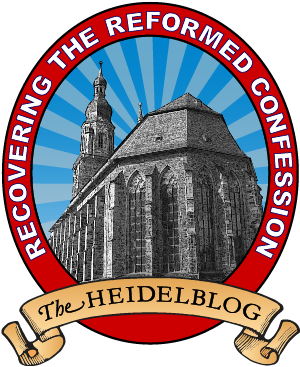Editor's Note: I was involved in promoting theonomy and Christian Reconstructionism for approximately a decade. However, the "general equity" of God's Law for the nations as stated in the WCF nagged at my conscience and I repented of my involvement in 2014. You can read about my change of heart here: A Change of Heart Regarding Theonomy (christian-heritage-news.com).
~~~~~~~~~~~~~~~~~~~~~~~~~~~~
IntroductionTwo of the more problematic stopping points for pilgrims to Reformed theology are the tollbooths theonomy and Christian Reconstructionism. The latter is a movement dating back to the 1950s and developed by the late R. J. Rushdoony (1916–2001). This movement depends heavily upon an eschatology in which society collapses and rises, like a phoenix out of the ashes to be reconstructed along Christian-theonomic lines. It anticipates a future glorious age, before the return of Christ, in which the most of the world is converted. It combines themes to which many American fundamentalist and evangelical Christians are strongly attracted: a kind of apocalyptic view of the near term, the sense that God is doing something unique in our time and we are part of it, and a vision of culture and society in which Christians are no longer marginal but play significant roles.
The other of these movements is theonomy, a theory developed by the late Greg Bahnsen (1948–95) which rejects the traditional Christian distinction between the civil, ceremonial, and moral aspects of the law of God. It rejects the Reformed doctrine that the Israelite theocracy was a unique, temporary divine institution, and that validity of the Israelite civil laws and punishments expired with the unique divine sanction of the Israelite theocracy with the death of Christ. Rather, the theonomists argue for the abiding validity of the civil law in exhaustive detail. In contrast, the Reformed confess:
4. To [the people of Israel] also, as a body politic, he gave sundry judicial laws, which expired together with the State of that people; not obliging any other now, further than the general equity thereof may require (Westminster Confession of Faith, 19.4).Both the Reconstructionists and theonomists have offered an idiosyncratic and historically unwarranted definition of “general equity,” which dovetails with and depends upon their equally unhistorical and idiosyncratic rejection of the historic Reformed views of natural law.
